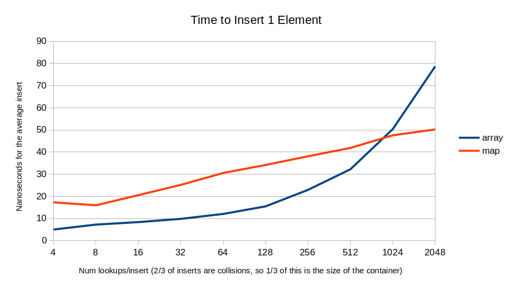- 17 Posts
- 74 Comments

 1·7 days ago
1·7 days agoAnd I agree that at some point it can become not worth the effort. But that point is pretty clearly after and mainstream statically typed language (Rust, Go, Typescript, Dart, Swift, Python, etc).
I really would like to believe that. And, as I said, I use Rust for larger, more complex programs with high requirements to performance.
But again, the statement in the second cited sentence - what proof does exist that this is true? I get that you can spend time and effort and get better correctness. I also get that better ergononics - like the far better error messages which the Rust compiler has compared to a C++ compiler - can possibly offset or perhaps even outweight the extra effort. And I think this probably increases with a programs size, complexity, and life time.
But to say it is always less effort if you use Rust or Idris, for any kind of program - I think that, even when subtracting the amount of becoming familiar with it, well this is a strong statement, and I’d like to see some evidence for it.

 1·7 days ago
1·7 days agoMemory safety is entirely orthogonal to typing though.
Well, is it possible that perhaps the benefits of Rust’s memory safety are confused to be benefits of static typing?

 2·7 days ago
2·7 days agoActually, Rust checks arrays, which have a static size, at compile time, and slices and vectors, which have a dynamic size, at run time.

 1·7 days ago
1·7 days agoThe problem with typing is that it does cost time to apply it - the stronger the typing, the more time. And at some point, the extra time spent to get the typing working will inhibit other things that would improve quality, such as testing, or writing detailed, clear specifications. For example, if stronger typing is really always better and Rust is better than C++ or Go, then why isn’t it better to write instead everything in Haskell, which has a stronger type system than Rust? Or F# instead of Java? And why not annotate everything that involves threads in TLA+ even if it is known to be very time-consuming?
Though I agree that there is a counter-argument which is related to the conditions of modern commercial software development: Anything that improves quality does cost a bit of time. In much of commercial software development, there is a lot of time pressure, so there is a strong incentive to cut all these corners and produce the fastest thing that somehow works.
Now, with languages like Rust, the code would not compile and work without the typing being right. So that’s kind of a protection or dam against that pressure. You can say: “Boss, alright, we need that as soon as possible - just wait a minute, I need to make it compile” And perhaps you can say: “See, our competitors use Rust and they ship faster”.

 1·7 days ago
1·7 days agoThe Wright brothers actually were big fans and brilliant practitioners of the scientific method, and it is fascinating to read how they worked. They invented laboratory aerodynamics. And they were not iterating fast - given that so many early aviation pioneers had died in crashes, they took their time and made a lot of small experiments, and this allowed them to realize that control is essential for safe powered flight, and they invented the control system which until today is the base for all fixed-wing planes.

 2·7 days ago
2·7 days agoIn Java, this wouldn’t cause a crash or an incorrect behaviour of the runtime. Java guarantees that. One still needs locking to keep grouped changes in sync and ordering of multiple operations consistent, but not like in Go, C, or C++.
Also, it is certainly possible to implement the “shared access xor mutating access” principle that Rust implements, in a dynamically typed language. Most likely this won’t come with the performance guarantees of Rust, but, hey, Python is 50 times slower than C and it’s widely used.

 2·8 days ago
2·8 days agoAs I already said: If you access and write to the same hash map from two different threads, this can cause a crash. And generally, if you concurrently access objects in Go, you need to use proper locking (or communication by channels), otherwise you will get race conditions, which can result in crashes. Ctrl-f “concurrency” here.This is different from, for example, Java or Python where fundamental objects always stay in a consistent state, by guarantee of the run time.

 12·7 days ago
12·7 days agoI was not meaning slices or array size checks at runtime.
The array size can be part of the static type, that is one that can be checked at compile time. Rust, Pascal, and Ada have such Arrays.
But if static typing is always better, why are these types rarely used?

 11·8 days ago
11·8 days agoYou can scientifically prove that one code snippet has fewer bugs than another though, and there’s already mountains of evidence of static typing making code significantly less buggy on average.
Do you mean memory safety here? Because yes, for memory safety, this is proven. E.g. there are reports from Google that wide usage of memory-safe languages for new code reduces the number of bugs.
You can’t scientifically prove that something is “better” than another thing because that’s not a measurable metric.
Then, first, why don’t the claims that statically compiled languages come with claims on measurable, objective benefits? If they are really significantly better it should be easy to come up with such measures?
And the second thing: We have at least one large-scale experiment, because Google introduced Go und used it widely in its own company to replace Python.
Now, it is clear that programs in Go run with higher performance than Python, no question.
But did this lead to productivity increases or better code because of Go being a strongly-statically typed language ? I have seen no such report - in spite of that they now have 16 years of experience with it.
(And just for fun, Python itself is memory safe and concurrency bugs in Pyhton code can’t lead to undefined behaviour, like in C. Go is neither memory safe nor has it that level of concurrency safety: If you concurrently modify a hash table in two different threads, this will cause a crash.)

 11·7 days ago
11·7 days agoIf you want to use dynamic typing without any type hints or whatever, go for it.
Oh, I didn’t say that I want that, or recommend to use only dynamic languages. For my part, I use a mix, and a big part of the reason is that it can, depending on circumstances, be faster to develop something with dynamic languages.
Especially, the statement “there is no scientific and objective proof that using statically typed languages is generally better by some measure (except speed)”, this does not mean that dynamically typed languages are generally or objectively better.

 1·8 days ago
1·8 days agoSo, if type checking at compile time is universally good, why are there (to my knowledge) no modern and widely used Languages, perhaps with the exception of Pascal and Ada, where all arrays or vectors have a size that is part of their type?

 1·8 days ago
1·8 days agoIf a program does type checking in advance of execution, it is by definition strongly typed.
Look here, under “typing discipline”:

 12·8 days ago
12·8 days agoI don’t know; I haven’t caught up on the research over the past decade. But it’s worth noting that this body of evidence is from before the surge in popularity of strongly typed languages such as Swift, Rust, and TypeScript.
Well, Lisp, Scheme and many more are strongly typed as well. The difference here is they are dynamically-strongly typed, where the evaluation acts as-if all types are not evaluated before run time.
This means essentially, that the type of a variable can change over its run time. And this is less relevant for functional or expression-oriented languages like Scheme, Scala or Rust, where a variable is in most cases rather a label for an expression and does not change its value at all.
In particular, mainstream “statically typed” languages still had
nullvalues rather thanOptionorMaybe.That again is more a feature of functional languages, where most things evaluate to expressions. Clojure is an example for this, it is dynamically - strongly typed and in spite of that it runs on the JVM, it does not raise NullPointerExeptions (the exception, so to speak, is when calling into Java).
And in most cases, said languages use type inference and also garbage collection (except Rust of course). This in turn results of course in clear ergonomic advantages, but they have little to do with static or dynamic typing.

 12·8 days ago
12·8 days agoAn indisputable fact is that static typing and compilation virtually eliminate an entire class of runtime bugs that plague dynamically typed languages, and it’s not an insignificant class.
Just another data point, for amusement: There is a widely known language that eliminated not only memory management bugs like “use after free”, but also data races and similar concurrency bugs, in 2007. No, I am not talking about Rust, but Clojure. It does prevent data races by using so-called persistent data structures. These are like Python’s strings (in that they can be input to operations but never change), but for all basic types of collections in Clojure, namely lists, vectors, dictionaries / hash maps, and sets.
And Clojure is dynamically typed. So, dynamically typed languages had that feature earlier. (To be fair, Rust did adopt its borrow checker from research languages which appeared earlier.)
“But”, you could say, “Java was invented in 1995 and had already memory safety! Surely that shows the advantage of statically typed languages?!”
Well, Lisp was invented in 1960, and had garbage collection and was hence memory-safe.

 1·8 days ago
1·8 days agoI submit that laboratory-experiment-based understanding being valid in real-world use, in any domain, is itself a belief rather than knowledge
I dunnow, man. Did you use a plane recently? A computer? Something that contained electronics, like transistors? GPS? A weather forecast? All these are based in things like fluid physics, particle physics, quantum physics, electrodynamics, mathematics, and so on. Our modern world would simply not exist without it.
Granted, there are areas where applying the scientific method is harder. But we still do, for example in medicine. Why should this not be possible in software development?

 1·8 days ago
1·8 days agoRust and OCaml use this.

 2·8 days ago
2·8 days agoyou’ve re-invented a strongly typed, compiled language without adding any of the low hanging fruit gains of compiling.
This is aside from the main argument around static typing which claims advantages in developer productivity and eventual correctness of code.
Now, I think it is generally accepted that compilation with the help of static typing enables compilation to native code which leads to faster executables.
Now, did you know that sevral good Lisp and Scheme implementations like SBCL, Chez Scheme or Racket compile to native code, even when they are dynamically typed languages? This is done by type inference.
And the argument is not that these are as fast as C or Rust - the argument is that the difference might be significantly smaller than what many people believe.

 22·8 days ago
22·8 days agoSo what scientific evidence has emerged in the mean time?
We know with reasonable certainty that memory-safety reduces memory bugs. This is valid for dynamically and statically typed languages.
However, under the assumption that dynamically typed programs do have a minimum amount of tests, we can’t say that static type checking is generally a better or more efficient approach.

 3·8 days ago
3·8 days agoIn my experience, tests can be a useful complement to specifications but they do not substitute them - especially, specs can give a bigger picture and cover corner cases more succintly.
And there are many things that tests can check which the respective type systems can’t catch. For example, one can easily add assertions in C++ which verify that functions are not called in a thread-unsafe way, and tests can check them.




Debian is not as easy as Ubuntu to set up, but much easier than in the past. And once set up, it’s rock solid and has long term security updates, so if one can get a little help with the installation, I’d recommend it even to novice users.
And Arch is fantastic if somebody wants to learn more about Linux, because of its fantastic wiki.